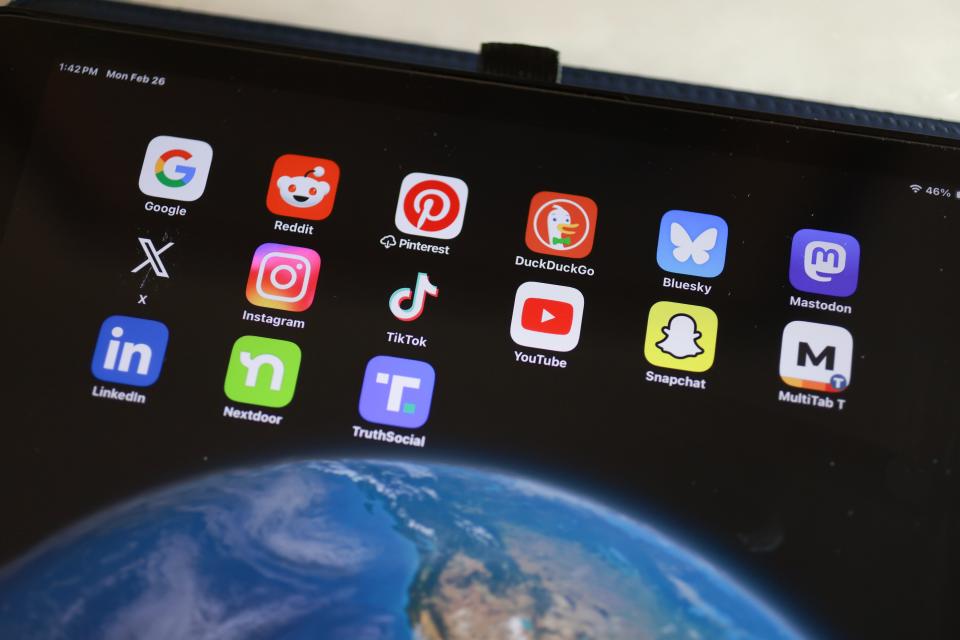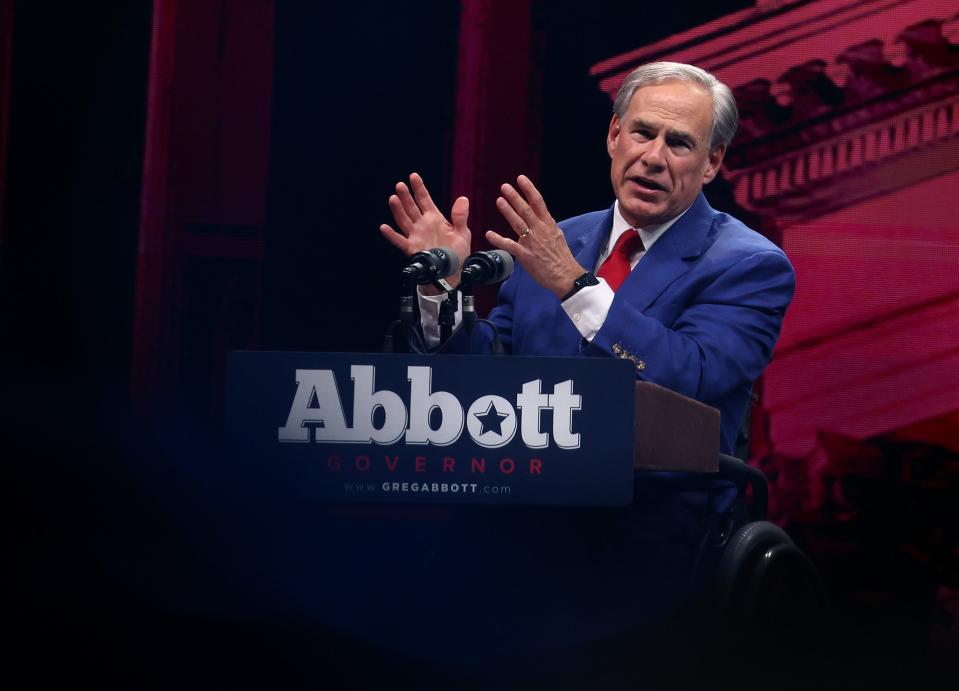What Supreme Court rulings mean for Trump and conservative America's war on Big Tech
For years Republicans hammered the message that powerful technology companies are biased against conservatives.
That grievance intensified in 2021 when major social media platforms suspended former President Donald Trump following the Jan. 6 attack on the Capitol. Florida and Texas responded by passing laws meant to limit how tech companies moderate content on their platforms.
"There is a dangerous movement by some social media companies to silence conservative ideas and values," Texas Gov. Greg Abbott, a Republican, said when he signed his state's law in 2021. "This is wrong and we will not allow it in Texas."
Anti-tech sentiment did not gin up as much partisan fervor as abortion or immigration, but it rallied a GOP base devoted to the former president. Then the popular conservative campaign hit a major snag: The nation’s high court.
Monday, the Supreme Court returned legal challenges to the Florida and Texas laws to the lower courts, saying the laws require further analysis to determine if they are constitutional. Though parts of the laws could be upheld, Justice Elena Kagan, writing for the majority, signaled key elements were unlikely to withstand scrutiny, dealing a blow to conservatives.
“In sum, there is much work to do below on both these cases,” Justice Kagan said, adding, “that work must be done consistent with the First Amendment, which does not go on leave when social media are involved.”
Political commentator Dan Schnur said the decision will enrage conservatives who believe their views are being suppressed by "wealthy technology executives."
"Since the courts won’t save them anytime soon, this will become an issue for GOP congressional candidates in the fall. But nothing will happen in Congress either, so the anger from the right will continue to grow," said Schnur, who teaches at the University of California – Berkeley’s Institute of Governmental Studies and at the University of Southern California’s Annenberg School of Communications.

Supreme Court social media rulings anger Republicans
The high hopes conservatives had when the censorship debate landed on the Supreme Court docket seem to be fading.
“Even with ‘conservative’ judges like Amy Coney Barrett, we can’t expect any help from the Courts,” Rep. Matt Gaetz, R-Fla., a Trump ally, tweeted last week after the Supreme Court rebuffed a lawsuit brought by the Republican attorneys general of Louisiana and Missouri and a small number of social media users who accused the Biden administration of crossing the line when it leaned on social media platforms to suppress content about COVID-19 and election fraud.
Legal experts said Monday’s ruling could also affect how state lawmakers attempt to regulate online speech and platforms in the future.
“While the decision today doesn’t definitively resolve the future of the Florida and Texas laws, a majority bloc of justices – led by Justice Kagan – articulated some important principles that represent a major victory for the First Amendment freedoms of social media services,” Santa Clara University School of Law professor Eric Goldman said.
Florida and Texas stuck to their ideological guns.
“Big Tech censorship is one of the biggest threats to free public discourse and election integrity,” Texas Attorney General Ken Paxton said in a statement on X. “I will keep fighting for our law that protects Texans’ voices.”
Trump and GOP campaign against social media losing momentum
Allegations that social media platforms violate the First Amendment rights of conservatives soared in recent years, becoming a key flashpoint in the nation’s culture wars.
The GOP says social media companies have been too quick to throttle conservative viewpoints and disclose too little about how they decide what content to remove. Social media companies say they don't target conservatives, only harmful speech that violates their rules.

Republican activists are still pressing the point in states around the country. States have introduced similar legislation to address the censorship allegations, but no new laws have been signed, said Computer & Communications Industry Association’s State Director Khara Boender.
"Today's Supreme Court decision underscores the level of scrutiny such similar laws would face with regard to protections provided under the First Amendment,” Boender told USA TODAY.
Florida and Texas social media 'censorship' laws remain blocked
Had Florida and Texas prevailed in the Supreme Court, the laws would have led to sweeping changes in what content Americans see in their social media feeds during a hotly contested presidential election.
Florida's law would require large social media platforms to "host some speech that they might otherwise prefer not to host" by prohibiting the censorship or banning of a political candidate or "journalistic enterprise."

The Texas law would prohibit social media companies with at least 50 million monthly active users from censoring users based on "viewpoint," and would allow either users or the Texas attorney general to sue.
The laws were challenged by tech industry trade groups NetChoice and the Computer & Communications Industry Association, whose members include Facebook parent Meta, Google’s YouTube and TikTok, and were blocked before they could take effect. One federal appeal struck down Florida’s statute, while another upheld the Texas law.
Without the ability to downgrade or block content, social media companies warned that users would be flooded by hate speech, spam, disinformation and other toxic content.
"Normal people do not want to go on websites and just see a ton of lawful but awful content," Chris Marchese, who oversees litigation for tech industry trade group NetChoice, previously told USA TODAY.
Both laws remain blocked.
This article originally appeared on USA TODAY: What the Supreme Court rulings mean for GOP war on social media 'bias'


